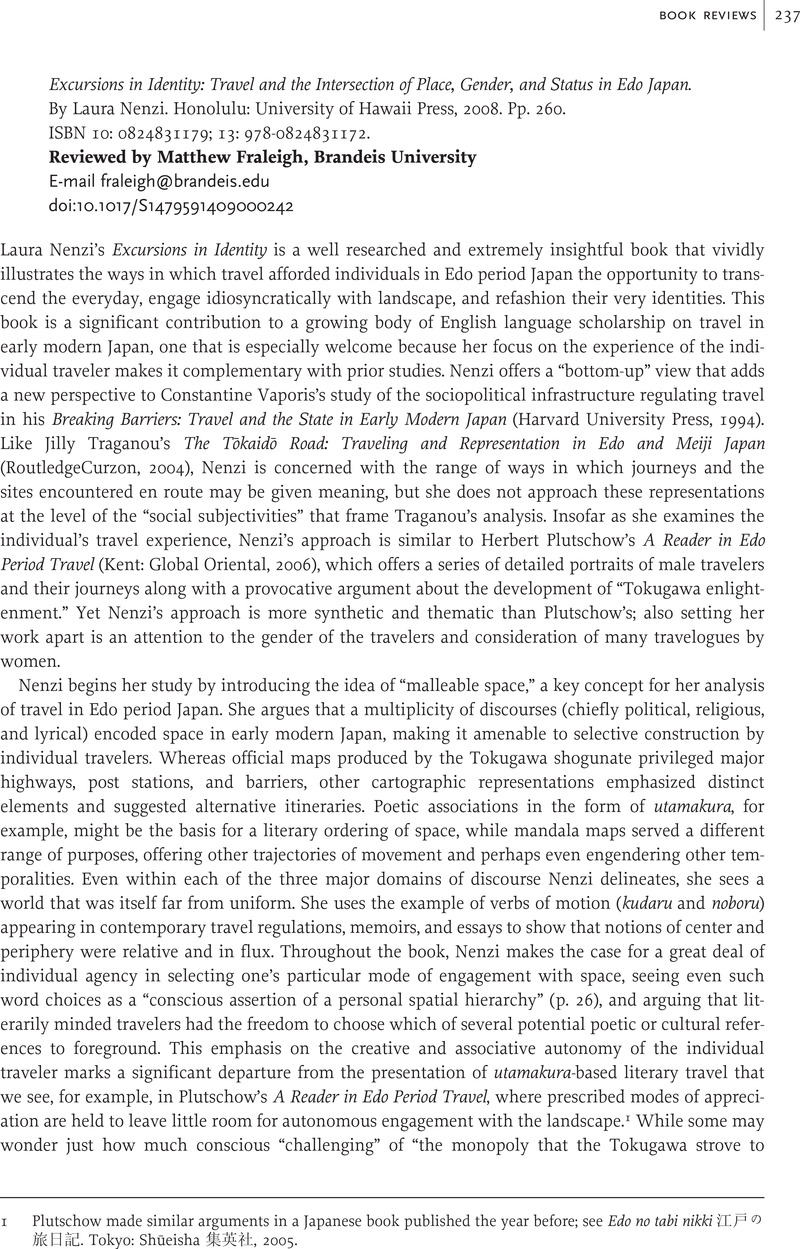No CrossRef data available.
Published online by Cambridge University Press: 31 July 2009

1 Plutschow made similar arguments in a Japanese book published the year before; see Edo no tabi nikki 江戸の旅日記. Tokyo: Shūeisha 集英社, 2005.
2 The specific literary references invoked by the travelers are also open to question; the poem Arakida Reijo composes (p. 105) surely refers primarily to Fujiwara no Shunzei's poem (Suzukagawa kiri no furuki no maru-kibashi kore mo ya koto no ne ni kayou ran); the poem an anonymous female traveler wrote in 1767 plays on the additional meaning of chitose as “crane,” and in its final words probably recalls Fujiwara no Kintō's poem in the Hyakunin isshu more than Ariwara no Narihira's at Yatsuhashi (pp. 112–13).